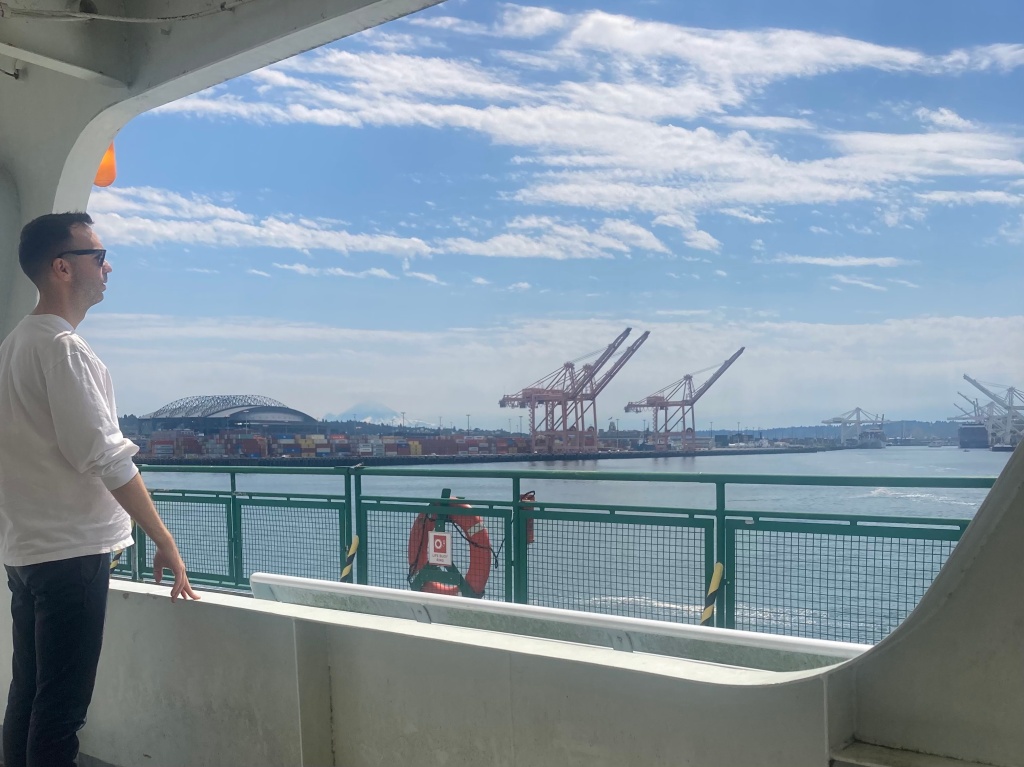
Welcome!
I’m Sean Fraga. I’m an interdisciplinary historian of the North American West and Pacific Ocean. I study links between coastal environments, U.S. territorial expansion, Native sovereignty, and technology, primarily during the nineteenth and twentieth centuries.
My book project, Ocean Fever: Steam Power, Transpacific Trade, and American Colonization of Puget Sound, is under contract with Yale University Press for publication in the Lamar Series in Western History. My award-winning research has been published in Western Historical Quarterly, Current Research in Digital History, and a special issue of Mobilities on settler colonialism. My writing has also appeared in The Washington Post, The Panorama, and World History Commons.
I’m presently an assistant professor (teaching) at the University of Southern California in the Environmental Studies Program, part of the Wrigley Institute for Environmental Studies. Previously, I spent two years as a Mellon postdoctoral fellow with USC’s Humanities in a Digital World program. I hold a Ph.D. in history from Princeton University and received my B.A. in American Studies, with distinction, from Yale University. You can view my full C.V. here.
I’m the creator of and project director for Booksnake, a new scholarly iPhone and iPad app for viewing digitized archival materials in augmented reality—making it feel as if a scanned map or newspaper is actually sitting on your real-world desk. The Booksnake project is supported by the National Endowment for the Humanities. My digital humanities projects draw on digital mapping, augmented reality, 3D modeling, data visualization, and text mining.
Research
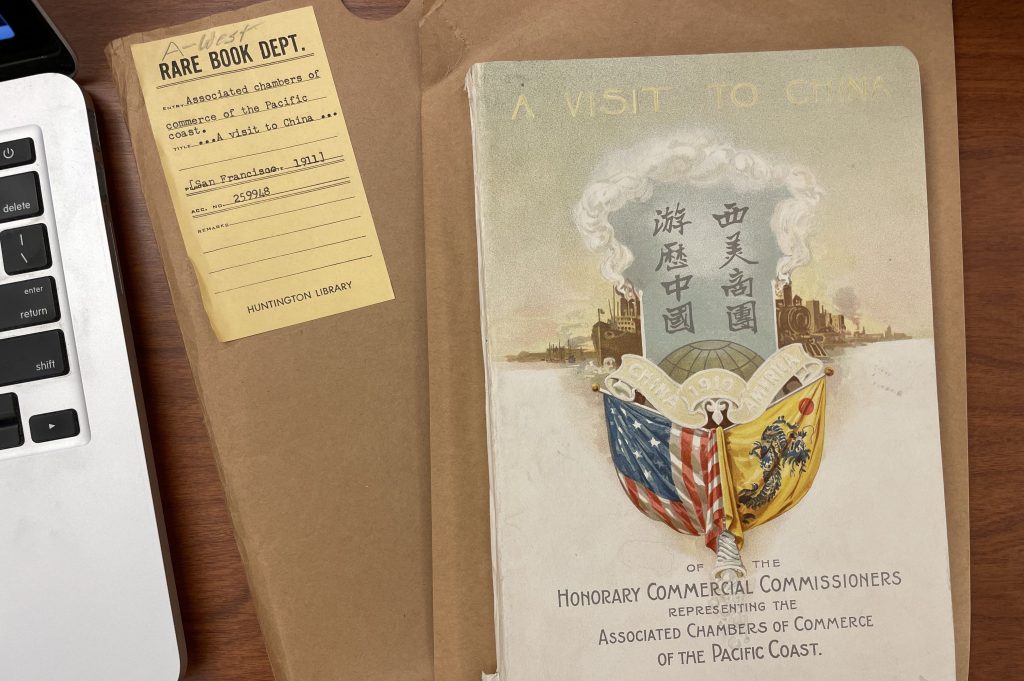
My scholarly research critically examines human relationships with space, place, and the more-than-human world. My work aims to unsettle dominant narratives in order to show how U.S. history is both and global and Indigenous. My current research focuses on how steam power catalyzed and structured U.S. expansion across North America and the Pacific Ocean.
In my book project, Ocean Fever: Steam Power, Transpacific Trade, and American Colonization of Puget Sound, I argue that that American settlers used steam-powered ships and railroads to claim the Pacific Northwest and reshape it as a maritime commercial center in pursuit of trade with Asia. But in the process, American settlers dramatically altered coastal environments and repeatedly displaced Native peoples. Today, Coast Salish Tribal nations around Puget Sound are leveraging their marine sovereignty to shape the region’s future. Ocean Fever explains how steam technology enabled the spatial practices of American empire, changing how we understand larger stories in American history, from westward expansion to urban development to global engagement. Hear me discuss this research with Bill Deverell, Director of the USC–Huntington Institute on California and the West.
My research has taken me to more than a dozen archives across the United States and Canada. My work has been financially supported by the Andrew W. Mellon Foundation, the Newberry Library, the Western History Association, and the North American Society for Oceanic History, among others.
Writing
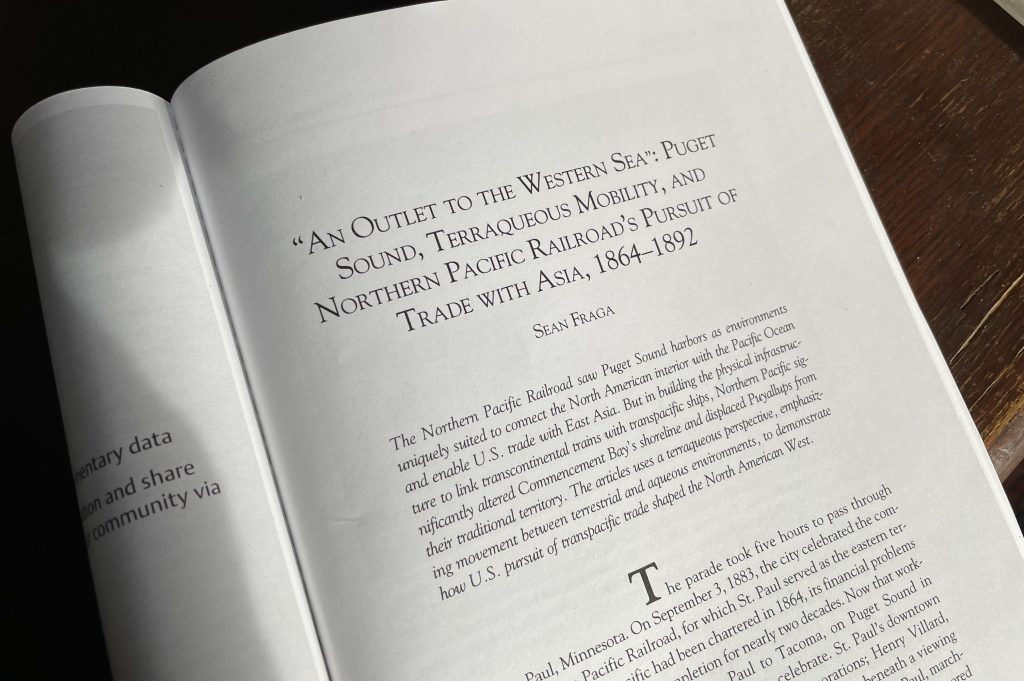
Books
- Ocean Fever: Steam Power, Transpacific Trade, and American Colonization of Puget Sound. Under contract with Yale University Press for publication in the Lamar Series in Western History.
Articles
- “Steam Power, Native Labor, and Contested Terraqueous Mobilities during American Settlement of Puget Sound, 1846–1873,” Mobilities 17, no. 2 (Spring 2022), a special issue, “Mobilizing Race and Indigeneity within and against Settler Colonialism,” co-edited by Genevieve Carpio, Natchee Blu Barnd, and Laura Barraclough: 196–212.
- “‘An Outlet to the Western Sea’: Puget Sound, Terraqueous Mobility, and Northern Pacific Railroad’s Pursuit of Trade with Asia, 1864–1892,” Western Historical Quarterly 51, no. 4 (Winter 2020): 439–458.
- “Digitally Mapping Commercial Currents: Maritime Mobility, Vessel Technology, and U.S. Colonization of Puget Sound, 1851–1861,” Current Research in Digital History 3 (2020).
- “Native Americans, Military Science, and Settler Colonialism on the Pacific Railroad Surveys, 1853–1855,” Princeton University Library Chronicle, vol. 75, no. 3 (Spring 2014): 317–349. Received the Friends of the Princeton University Library Prize for Outstanding Scholarship by a Graduate Student.
Invited contributions
- “From Sea to Sea: The Northwest Passage, Early America, and the Push to the Pacific Ocean,” invited roundtable contribution to The Panorama: Expansive Views from the Journal of the Early Republic.
- “Short Teaching Module: History of the Pacific Ocean” (peer reviewed), invited methodology contribution to World History Commons, World History Association and Roy Rosenzweig Center for History and New Media, George Mason University, Fairfax, Virginia.
Book reviews
- Review of Paper Trails: The U.S. Post and the Making of the American West by Cameron Blevins (New York: Oxford University Press, 2021), American Historical Review. Forthcoming.
- Review of West of Slavery: The Southern Dream of a Transcontinental Empire by Kevin Waite (Chapel Hill: University of North Carolina Press, 2021), American Nineteenth Century History, vol. 21, no. 2 (October 2021): 229–231.
- Review of Transit: The Story of Public Transportation in the Puget Sound Region by Jim Kershner and the HistoryLink staff (Seattle: University of Washington Press, 2019), H-Environment, H-Net Reviews (January 2021).
- Review of Coast-to-Coast Empire: Manifest Destiny and the New Mexico Borderlands by William S. Kiser (Norman, Okla.: University of Oklahoma Press, 2018), in American Nineteenth Century History, vol. 20, no. 1 (May 2020): 98–99.
- Review of The Chinese and Iron Road: Building the Transcontinental Railroad edited by Gordon Chang and Shelley Fisher Fishkin (Stanford, Calif.: Stanford University Press, 2019), in Journal of the Gilded Age and Progressive Era, vol. 19, no. 2 (April 2020): 341–343.
- Review of An Aqueous Territory: Sailor Geographies and New Granada’s Transimperial Greater Caribbean World by Ernesto Bassi (Durham, N.C.: Duke University Press, 2017) in Journal of Colonialism and Colonial History, vol. 20, no. 3 (Winter 2019).
- Review of The Spokane River ed. Paul Lindholdt (Seattle: Univ. of Washington Press, 2018), in Western Historical Quarterly, vol. 50, no. 4 (Winter 2019): 426–427.
- Review of Sailing with Vancouver: A Modern Sea Dog, Antique Charts and a Voyage through Time by Sam McKinney (Victoria, B.C.: Touchwood Editions, 2018), in BC Studies: The British Columbian Quarterly, no. 203 (Fall 2019).
- Review of The Sea Is My Country: The Maritime World of the Makahs by Joshua L. Reid (New Haven: Yale University Press, 2016), in The Mariner’s Mirror, vol. 102, no. 4 (Nov. 2016): 476–477.
Other writing
- “Trump’s TikTok deal shows how trade with China is woven into the American DNA,” Made by History, The Washington Post (Sept. 23, 2020).
- “Digital Visualizations of Pacific Northwest Maritime Trade Networks During American Settlement, 1851–61,” Digital Frontiers: A WHA Digital History Blog (Oct. 4, 2019), Western History Association.
- “Elevated Waterfronts: Bird’s-Eye-View Maps and Urban Coastal History,” The Coastal History Blog (Aug. 13, 2019), Port Towns & Urban Cultures research group, University of Portsmouth (U.K.).
- “Chinese Railroad Workers and the Golden Spike,” U.S. History Scene (May 5, 2019).
- “Princeton Needs New Campus Monuments,” The Daily Princetonian, vol. 143, no. 2 (Feb. 5, 2019): 6.
Teaching
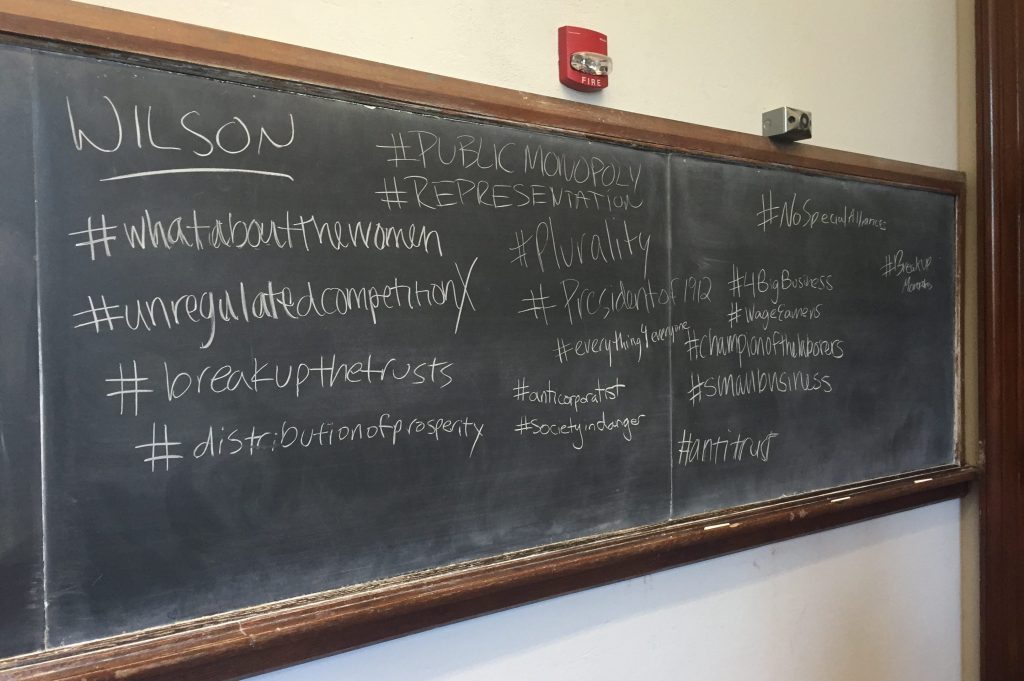
My teaching investigates how power works. My students learn to interrogate political, economic, social, and cultural power dynamics, and to understand themselves as actors within those structures. My background as a queer scholar has acquainted me with the challenges faced by students who feel they don’t belong in academic settings. I am committed to welcoming all students, emphasizing their ability to learn and grow, and supporting their success in the classroom and beyond.
At U.S.C., I developed the seminar “Pacific Beaches in the American Imagination.” Students often imagine beaches as places for play and relaxation. But in this course, we learn to critically investigate beaches as places shaped by race, gender, class, colonialism, and human interactions with the environment. Students assemble a Pacific Playlist of songs that sound like the Pacific Ocean and contribute essays to Pacific Postcards, a collection of primary sources related to Pacific Worlds.
My teaching areas include U.S. history, the North American West, environmental history, borders and borderlands, oceanic history, digital humanities, the history of technology, infrastructure studies, urban and suburban history, spatial history, and historical research methods. With Andy Rutkowski, I teach a summer workshop in spatial humanities and digital mapping.
Speaking
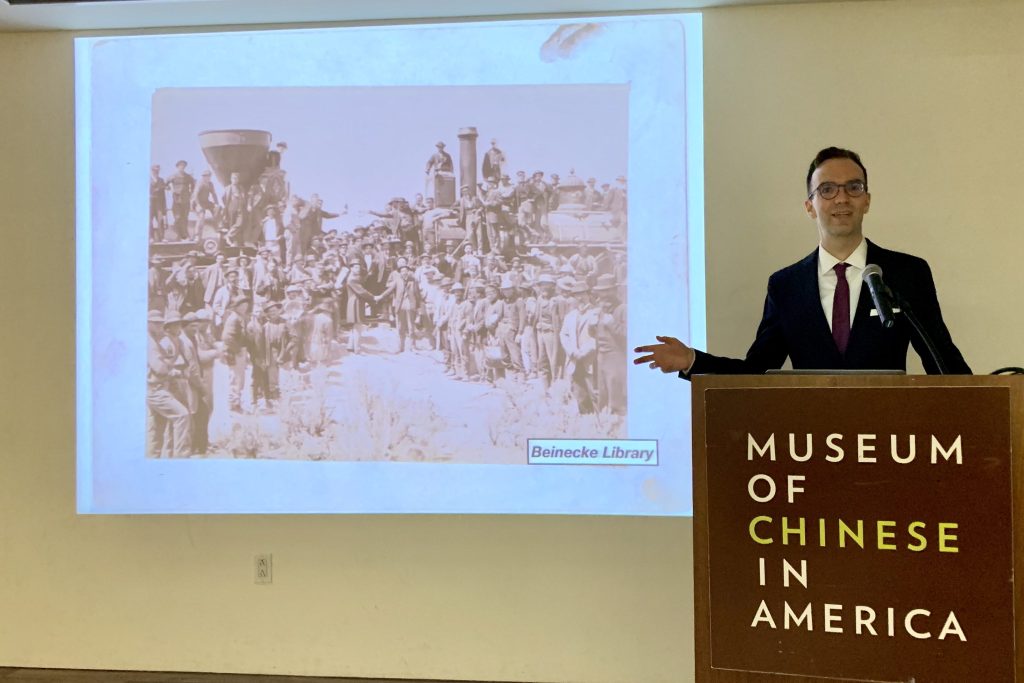
I’ve been invited to discuss my research at Stanford, Johns Hopkins, Columbia, the American Philosophical Society, and the Massachusetts Historical Society, among others.
I’m always interested in collaborating with other scholars on conference proposals. If you’re interested in having me join a panel, visit your class, or speak at your institution, please get in touch: sfraga@usc.edu.
Follow me on Twitter for periodic updates about future engagements, or see my C.V. for the full list of past events.
Upcoming events
- “Booksnake: An Augmented Reality Interface for Embodied Interaction with Digitized Archival Materials,” Critical Data Practices Symposium, Stanford Humanities Center and Center for Spatial and Textual Analysis (CESTA), Stanford University, October 2022.
- “Dispossession at an Edge of Empire: Puget Sound Wharves as Imperial and Settler Colonial Infrastructure,” Organization of American Historians conference (virtual session), Los Angeles, Spring 2023.
Digital Humanities
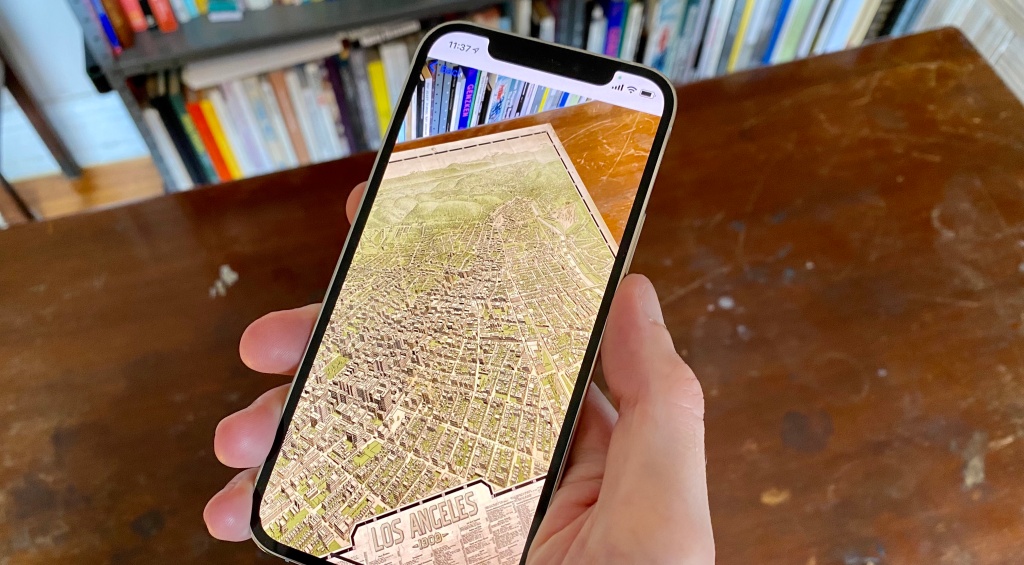
Along with traditional archival research, I use digital mapping and data visualization to unlock the stories in non-narrative sources. My Princeton dissertation was awarded the Center for Digital Humanities 2019 Dissertation Prize for “exceptional doctoral work with a digital humanities component.” My current digital humanities research focuses on geographical text analysis and augmented reality.
I’m the principal designer and project director for Booksnake, an NEH-supported scholarly iPhone and iPad app for viewing digitized archival materials in augmented reality. Learn more here.
I’m the primary investigator for They Came on Waves of Ink: Pacific Northwest Maritime Trade at the Dawn of American Settlement, 1851–61. As a postgraduate research associate with Princeton’s Center for Digital Humanities, I led undergraduate research assistants in transcribing a handwritten ledger of U.S. Customs data covering the Puget Sound Customs District’s first decade. I’m now using maps and data visualizations to analyze these data and explore the stories contained within. Datasets related to this project are available in my GitHub repository.
I’m a member of the Western History Association’s Technology Committee. We work to advance digital scholarship through research lightning rounds, digital drop-in sessions, and databases of digital humanities work. I’ve also served as a digital mapping project consultant for projects in preparation at Princeton, U.S.C., the U.S. Naval Academy Museum, and the Autry Museum of the American West.
Contact
Get in touch by emailing me at sfraga@usc.edu, connecting with me on academia.edu, or browsing my repositories on GitHub.
You can follow me on Twitter: @seanfraga.
My pronouns are he/him. My last name is pronounced “FROG-uh.”